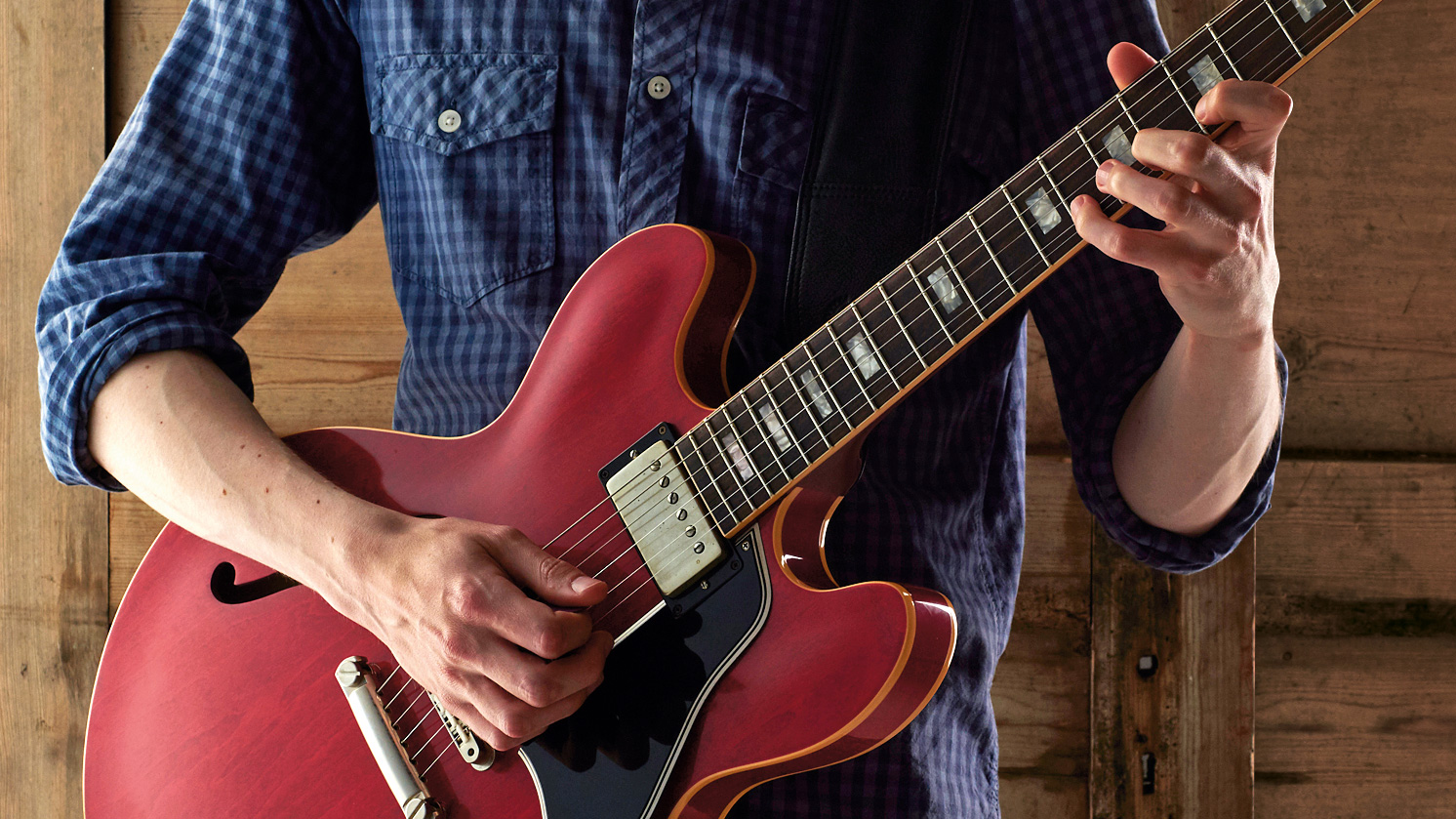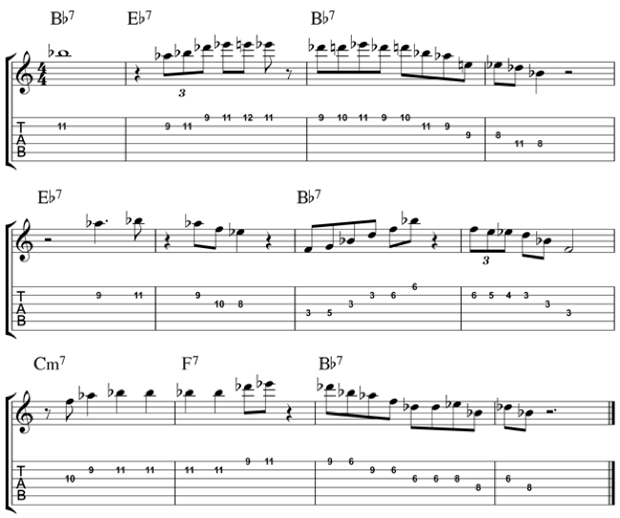These smooth BB King licks work for more than just blues
How to use BB's blues ideas in a jazz context

After learning about BB King’s passing, I went back and spent some time listening to my old BB King records, enjoying spending time with one of my favorite guitarists.
While listening to BB’s playing for a few hours, I began to hear lines in his vocabulary that were not only great blues ideas, but that could be applied to a jazz guitar solo and fit perfectly in that genre as well.
In this lesson, I’ve laid out three classic BB King lines that jazz guitarists can study, break down and apply to their playing in order to translate the vocabulary of this legendary guitarist into their jazz soloing lines and phrases.
B.B. King Blues Line 1
The first line is a typical BB King minor blues lick that you can apply to your jazz blues soloing, here written out in the key of Bb. Once you have this line under your fingers, try playing it in different keys, as well as putting on a Bb jazz blues backing track and inserting this line into your improvised solos over that progression.

B.B. King Blues Line 2
We’re moving over to the other side of the blues with a BB King major pentatonic scale line in this example. Though he is mostly known for his minor blues phrases, BB King was also a master at crafting interesting and creative major sounding lines and using them in just the right moments to create contrast in his solos.
All the latest guitar news, interviews, lessons, reviews, deals and more, direct to your inbox!
If the major pentatonic scale is new to you, it looks similar to the minor pentatonic scale on the fretboard, but you need to treat it as an arpeggio in your soloing. This means that if you have a Bb7 chord, such as you do in this example, you solo over that chord with the major pentatonic scale. When you move to the Eb7 chord, the next chord in the jazz blues in Bb progression, you have to move to an Eb major pentatonic scale. Each chord gets its own major pentatonic scale, as opposed to the minor pentatonic scale, which can be used over the entire blues or jazz blues chord progression.
You will also notice a few chromatic notes in the second bar, E-Eb, that connect the 5th of the scale, F, and the third of the scale, D. These chromatic notes will bring a jazzy sound to your major pentatonic lines, and they’re the reason that this BB King line in particular works so well in a jazz situation. When you have this lick under your fingers, put on a jazz blues backing tack and practice applying this line to the three 7th chords in that progression, Bb7, Eb7 and F7, using a different major pentatonic scale for each chord in the tune.

BB King Blues Line 3
The final line mixes the major and minor blues sounds over a Bb7 chord, in a classic BB line that you can apply to your jazz blues soloing phrases. Again, because it mixes sounds from both scales, you will need to play this line over just a Bb7 chord, then when you move to Eb7 you need to move this line in order to fit that new chord.

BB King Sample Blues Solo
To finish of our studies of these BB King blues lines for jazz guitar, here's a sample solo over a jazz blues progression in the key of Bb that uses the previous three lines in its construction. Try learning the solo one phrase at a time, and then piece it all together as you play the solo as a whole in your studies.

Matt Warnock is the owner of mattwarnockguitar.com, a free website that provides hundreds of lessons and resources designed to help guitarists of all experience levels meet their practice and performance goals. Matt lives in the UK, where he teaches Skype guitar students all over the world, and is an examiner for the London College of Music (Registry of Guitar Tutors).
